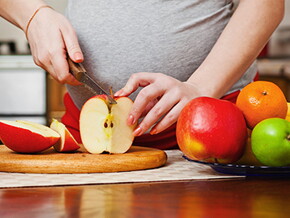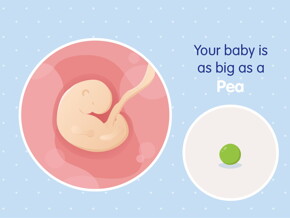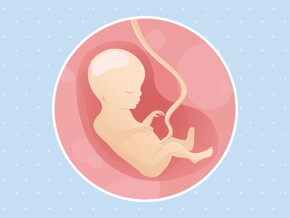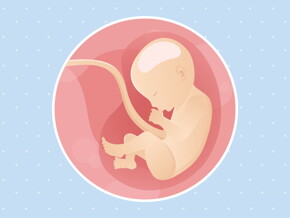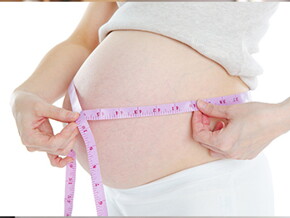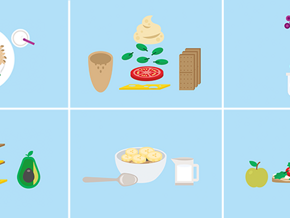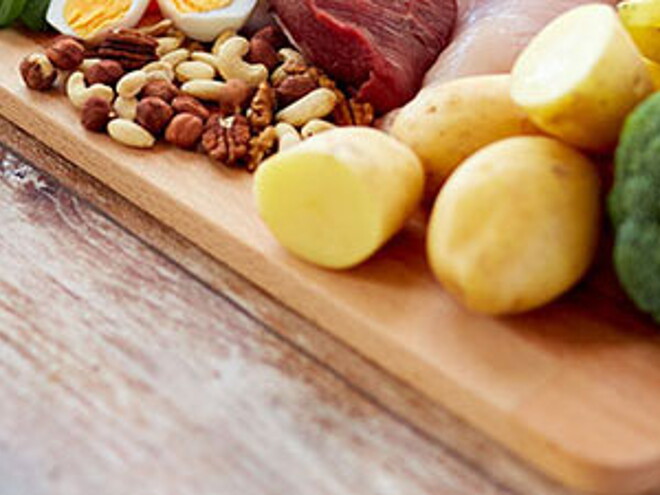
5 recommendations for eating well during pregnancy
1. Eat a little more…
… but don't eat for two! The most important thing is to eat better so that your body and your baby will get all the nutrients you need.
In practice:
- To meet your additional needs, there is no point in simply eating more at mealtimes: you will only risk bad digestion!
- Allow yourself one or two balanced extra snacks per day. For example: 1 cup of natural yogurt + oatmeal cereals or 100g white cheese + some fresh fruit cubes.
2. Eat a varied diet
This is the key to balanced nutrition. By eating a little of everything from a healthier choice, you’ll benefit from each of them and you will be assured of having plenty of essential nutrients.
When grocery shopping, choose foods labelled with the Healthier Choice Symbol or Healthier Snack Symbol as these are usually lower in fat, sugar, or salt and higher in fibre compared to other regular products of a similar range.
In practice:
- Adopt the HPB’s recommendation of having "2 servings of fruit and 2 servings of vegetables per day": fresh orange juice at breakfast, a serving of green vegetables with your rice or noodles and a piece of fruit at lunch, and a refreshing garden salad at dinner.
- You can even treat yourself to a homemade smoothie made with fresh fruit, yogurt and a glass of your nutritious maternal milk.
- If there are certain things you don't like - such as fish for example - you can simply replace it with another source of protein such as meat, eggs or tofu.
3. Don't get obsessed with balance!
During these nine months, you will be gaining weight: this is inevitable and essential for your health and that of your baby. This is therefore not the time to go on a diet, but rather to ensure an optimal weight gain. Your weight gain will be medically monitored and your doctor will tell you whether it is appropriate or not.
In practice:
- To ensure that you do not gain any unwanted kilograms, avoid fatty and very sugary foods where possible, as they have many calories but not many essential nutrients and are therefore of little nutritional value for you or your baby: pastries, sweets and ice-cream offer little nutritional values for you or your baby.
- Limit erratic snacking! With three balanced meals and one or two snacks per day, you will avoid nipping out to the pastry and dessert shops.
- Choose your carbohydrate with high dietary fibre (e.g. cereals, brown rice, whole-grain bread) which will fill you up for a considerable time.
4. Don't skip meals
Your body needs three proper meals a day. Try to stick to this rule if you are not too hungry. Breakfast is the most important, otherwise, your energy levels will drop at mid-morning!
In practice:
- Really can’t stomach any food in the morning? Drink a large glass of fruit juice and pack breakfast to office instead. An apple, some biscuits or a piece of bread, some dried fruit... Eat it at around 10am, when your body has had time to wake up a little.
- If you have no time for breakfast, grab a sandwich on the go. Choose one that contains protein (chicken, ham, etc.), vegetables (lettuce, tomatoes, etc.), dairy products (gruyère cheese, low-fat yogurt etc.) and bread (preferably whole-grain). Finish with a piece of fruit.
5. Eliminate!
Hydration is essential during pregnancy to meet your own needs, but also for your future baby. When combined with fibre consumption (which is found in fruit and vegetables, cereals, whole starches such as pasta and rice, etc.), drinking a lot of fluids will combat constipation.
In practice:
- Pregnant women are advised to drink at least 8-10 glasses of fluid per day. Opt for water rather than any other source of liquid, especially carbonated beverages and sugary drinks. Also cut down on stimulating beverages of the coffee or tea type. Put some lemon or lime into your water, for example, to give it more taste without adding a single calorie! Do remember to have a glass or two of your nutritious maternal milk.
- Fibre on the menu? Think about prunes, whole-grain cereals, whole-grain bread, almonds, dried apricots, etc. as well as all cooked green vegetables (easier to digest than raw).
If, despite everything, you want to go on a diet, please consult a dietician. She will discuss your current dietary habits and suggest various ways to improve them. You will thus acquire good dietary habits that will last all your life!
During the course of your nine months of pregnancy, you should be eating an average of 90,000 additional calories!
Eating a varied and balanced diet is essential for both you and your baby. To help you apply the major principles, follow these 5 recommendations!
Breakfast:
- 1 glass of nutritious low-fat milk (e.g. Nestlé Mom & Me – a premium nutrition supplement for pregnant and lactating moms)
- 2 slices of whole-meal bread with low-fat cheese and lettuce leaves
Mid Morning:
- 1 small pau
Lunch:
- 1 bowl of sliced fish soup with rice noodles and a serving of vegetables (e.g. chye sim)
- 1 serving of kiwi
Mid Afternoon:
- 1 serve of vegetable sticks
Dinner:
- 1 bowl of brown rice with 1 serve of grilled chicken (palm-size) with a serve of lightly sautéed vegetables (e.g. bell peppers, mushrooms, tomatoes or other leafy vegetables)
- 1 slice of fruit (1 small fruit such as banana, pear, slice of papaya, etc.)
Night:
- 1 glass of nutritious low-fat milk (e.g. Nestlé Mom & Me – a premium nutrition supplement for pregnant and lactating moms)
- 1 oatmeal cereal (1 small bowl of oatmeal if needed or 2 biscuits, etc.)
